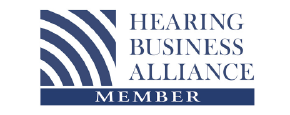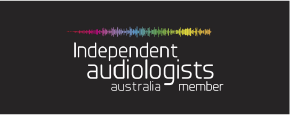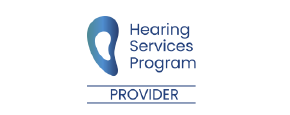Are you looking for a hearing test in Redcliffe?
Are you having difficulty communicating? Our expert audiologists at Hearing Help can help improve your hearing clarity. Book your consultation today and reconnect with the sounds and people you love!
Hearing Test in Redcliffe Brisbane
Are you looking for Hearing Test in Redcliffe Brisbane? We are conveniently located within the Newport Physio and Health clinic at Newport Marketplace. Hearing Help, a reputable audiology practice, offers comprehensive hearing tests in Newport, serving Redcliffe and surrounding areas in Brisbane. Our team is dedicated to providing personalised solutions to improve the quality of life for individuals with hearing loss. We understand the importance of good hearing health and regular hearing tests in preventing social isolation, frustration, and depression. A comprehensive hearing test assesses an individual’s ability to detect and interpret sounds, identifying hearing disorders. By exploring our services, you can discover how our experienced audiologists can help you protect your hearing and ensure continued engagement with the world around you.
About Hearing Help
As a reputable audiology practice, Hearing Help boasts a team of experienced professionals dedicated to providing personalised hearing solutions in a caring and supportive environment. Our mission is to improve the quality of life for individuals with hearing loss, empowering them to reconnect with their loved ones and surroundings.
At Hearing Help, we understand the unique needs and concerns of each patient, which is why we take a patient-centered approach to audiology care. Our team of audiologists and hearing specialists utilise the latest technologies and evidence-based methods to diagnose and treat hearing loss, tinnitus, and other ear-related conditions. We offer a comprehensive range of services, including hearing tests, hearing aid fittings, and ongoing maintenance to ensure optimal results.
With years of combined experience, our team has developed a deep understanding of the complexities of hearing loss and its emotional impact on individuals and families. We strive to create a warm and welcoming atmosphere, making each patient feel valued, informed, and supported every step of the way. By combining expertise, compassion, and personalised attention, we aim to make a meaningful difference in the lives of those we serve.
Why Choose Hearing Help?
Hearing Help, located in Newport 4020 Brisbane, offers hearing services to the surrounding areas. They provide professional, client-centered care with experienced audiologists who strive to serve the community with genuine service. Additionally, they offer comprehensive services including hearing tests, tinnitus assessments, and hearing aid fittings customised to individual needs with the latest technology.
Importance of hearing health and regular hearing tests
Maintaining good hearing health is crucial for overall well-being and quality of life. Our ability to hear plays a significant role in our daily interactions, communication, and social connections. Yet, despite its importance, hearing health is often neglected until significant damage has occurred. Regular hearing tests are essential to identify hearing problems early, allowing for timely intervention and prevention of further deterioration. Even mild hearing loss can impact one’s ability to engage fully in conversations, follow instructions, and participate in social activities, potentially leading to feelings of isolation, frustration, and depression. By incorporating regular hearing tests into one’s healthcare routine, individuals can take proactive steps towards protecting their hearing, addressing any concerns promptly, and ensuring they continue to engage fully with the world around them.
What is a Hearing Test?
Typically, a hearing test is a comprehensive evaluation designed to assess an individual’s ability to detect and interpret sounds at various frequencies and volumes. It is an essential tool used by audiologists and other hearing specialists to identify and diagnose hearing disorders. A hearing test aims to provide an accurate and detailed picture of an individual’s hearing capabilities, enabling healthcare professionals to make informed decisions about the most effective course of treatment.

During a hearing test, an individual’s hearing is evaluated through a series of assessments, which may include a review of their medical history, a physical examination of their ears, and a series of listening tests. The test results are then used to determine the individual’s hearing threshold, which is the minimum sound intensity they can detect. The overall goal of a hearing test is to identify any hearing difficulties, determine the underlying causes, and provide guidance on how to address them.
Types of Hearing Tests
When assessing an individual’s auditory function, a range of tests may be employed, each designed to evaluate specific aspects of hearing and provide a comprehensive understanding of their hearing abilities. Pure tone audiometry is a common type of hearing test, which assesses an individual’s ability to detect different frequencies of sound. Speech audiometry, on the other hand, evaluates how well an individual can understand and process spoken language.
Tympanometry is another type of test, which examines the movement of the eardrum and the reflexes of the middle ear muscles. This test helps identify any issues with the middle ear, such as blockages or infections. Acoustic reflex testing is also used to assess the function of the middle ear muscles. In addition, otoacoustic emission testing (OAE) measures the sounds produced by the inner ear in response to sound stimulation, allowing for the assessment of cochlear function. Bone conduction testing is used to assess the ability to hear sound through the bones of the skull. These tests, among others, are utilised to gain a thorough understanding of an individual’s hearing abilities.
Preparing for Your Hearing Test
To ensure a thorough and accurate assessment of your hearing, it is essential to be well-prepared for your hearing test. In this section, we will outline what you can expect during your visit, from arrival to completion, including the duration of a typical hearing test. We will also provide valuable tips on how to prepare for your hearing test to help you feel more comfortable and confident throughout the process.
What to Expect
Prior to arriving for your scheduled hearing test, understanding the procedures and what to expect can help alleviate any anxiety or uncertainty you may be experiencing. It is essential to be aware of the fact that a hearing test is a pain-free and non-invasive process.
You can also expect your audiologist to ask you a series of questions before the test, which is an essential part of the evaluation process. These may include questions about your medical history, current medications, and any hearing-related symptoms or difficulties you are experiencing.
You may be asked to bring a family member or friend with you to the appointment, especially if they have noticed any changes in your hearing abilities. This will provide additional insight into your hearing profile. Being honest and transparent about your symptoms and history will help your audiologist provide an accurate assessment of your hearing health. They will then be able to recommend the most suitable solutions for your specific needs.
Description of the process from arrival to completion
The process of a comprehensive hearing evaluation begins with your arrival at our Redcliffe Brisbane clinic, where you will be greeted by our friendly staff and asked to complete any necessary paperwork before meeting with your audiologist. This paperwork will include a comprehensive case history form that will provide us with valuable information about your hearing concerns, medical history, and lifestyle. Your audiologist will then review this information with you to identify your specific needs and concerns.
Once the necessary paperwork is completed, your audiologist will escort you to a soundproof testing room where the hearing evaluation will take place. They will begin by examining your ears visually using an otoscope to check for any blockages or abnormalities in the ear canal. Your audiologist will then conduct a series of tests designed to assess your hearing ability, including pure-tone audiometry, speech audiometry, and tympanometry. These tests will help us understand how your ears are functioning and identify any potential hearing problems. Throughout the process, your audiologist will explain each test and answer any questions you may have.
Duration of a typical hearing test
Typically lasting around 30-60 minutes, a comprehensive hearing evaluation is a relatively brief process that can provide valuable insights into your hearing health and identify any potential issues. During this time, an experienced audiologist will conduct various tests to assess your auditory system, including your external ear, eardrum, middle ear, cochlea, and auditory nervous system.
The evaluation generally starts with a thorough questioning about your medical history and hearing concerns. The assessment itself involves a combination of visual examinations, such as otoscopy, tympanometry, and Pure Tone Audiometry, Acoustic Reflex Testing, Sound Field Testing, Bone Anchored Hearing Aids measurement (if required), other physiological and behavioral tests relevant to hearing assessments.
Due to the complexity of your auditory system, these evaluations comprise various procedures, all needing different amounts of time—your evaluation could take relatively less time or a while longer, depending on diagnostic procedures relevant to your suspected or existing condition. But be assured, it isn’t too long for potential peace of mind and perhaps to get back on sound ground.
Tips for preparing for a hearing test
Several steps can be taken to prepare for a hearing test, ensuring that your evaluation is as thorough and effective as possible. Before your appointment, it is essential to gather information about your medical history, including any previous ear problems, hearing loss, or exposure to loud noises. This information will help your audiologist understand your hearing health and make informed decisions about your care.
It is also important to avoid exposure to loud noises for at least 24 hours before your test, as this can affect the accuracy of your results. Additionally, remove any earwax or debris from your ears, as this can interfere with the testing process. On the day of your appointment, arrive early to complete any necessary paperwork and get settled before your test begins. Finally, ask questions or express any concerns you may have to your audiologist, as they are there to support you throughout the evaluation process.
The Hearing Test Procedure
The hearing test procedure at our Redcliffe Brisbane clinic begins with an initial consultation, where you will meet with one of our experienced audiologists to discuss your symptoms and concerns. During this meeting, we will also take a thorough medical history to identify any potential factors contributing to your hearing issues. This comprehensive approach allows us to tailor the subsequent tests to your specific needs, ensuring accurate and effective results.
Initial Consultation
Conducting a comprehensive hearing test begins with an initial consultation, a crucial step that enables our audiologists to gather essential information about an individual’s hearing concerns, medical history, and lifestyle. This consultation allows us to tailor the hearing test to the individual’s specific needs, ensuring accurate and reliable results.
During the initial consultation, we will ask questions about the individual’s hearing difficulties, such as the duration and nature of their symptoms, and any previous hearing tests or treatments they have undergone. We will also discuss their lifestyle and how their hearing affects their daily activities. This information will help us to identify potential causes of hearing loss and determine the most effective course of action.
The initial consultation is also an opportunity for us to explain the hearing test procedure, answer any questions the individual may have, and ensure they feel comfortable and informed throughout the process. By taking the time to gather this essential information, we can ensure that the hearing test is conducted efficiently and effectively, providing accurate results that will inform the individual’s treatment plan.
Discussion with an audiologist about symptoms and medical history
Following the initial consultation, a detailed discussion with an experienced audiologist will take place to explore specific symptoms and medical history relevant to the individual’s hearing concerns. This discussion is a crucial step in the hearing test procedure, as it enables the audiologist to gather essential information about the individual’s hearing difficulties, medical conditions, and lifestyle factors that may impact their hearing. By understanding the individual’s unique situation, the audiologist can tailor the hearing test procedure to address their specific needs.
During this discussion, the audiologist will ask questions about the individual’s hearing symptoms, such as the duration and severity of their hearing difficulties, any notable triggers or exacerbating factors, and any previous treatments or interventions. They will also inquire about the individual’s medical history, including any previous ear surgeries, head injuries, or medical conditions that may affect the ear or auditory system. This thorough understanding of the individual’s symptoms and medical history will inform the selection of appropriate hearing tests and facilitate a more accurate diagnosis and effective treatment plan.
Conducting the Tests
As the initial consultation and discussion with the audiologist come to a close, a comprehensive series of hearing tests is administered to assess the individual’s auditory function and gather objective data about their hearing abilities. These tests are designed to evaluate the individual’s ability to detect and process different sounds and frequencies. The tests may include pure-tone audiometry, speech audiometry, and tympanometry. Pure-tone audiometry involves listening to a series of tones through headphones and responding when the tone is detected. Speech audiometry involves listening to words and sentences and repeating them back to the audiologist. Tympanometry involves using a small probe to assess the movement of the eardrum and middle ear system.
The results of these tests provide the audiologist with a comprehensive understanding of the individual’s hearing abilities and help identify any hearing loss or abnormalities. The tests are typically painless and non-invasive, and the results are used to develop a personalised treatment plan to address any hearing-related issues. Throughout the testing process, the audiologist will provide clear instructions and ensure the individual’s comfort and understanding of the procedures.
Post-Test Consultation
Following the completion of the hearing test, a comprehensive post-test consultation is conducted to discuss the results and their implications. During this consultation, the audiologist will present and explain the test findings, and provide personalised treatment options and recommendations tailored to the individual’s specific needs. This session also serves as an opportunity to schedule follow-up appointments as needed.
Treatment Options and Recommendations
Your audiologist’s primary goal during the post-test consultation is to clearly outline the most suitable treatment options and recommendations tailored to your specific hearing needs and preferences. Based on the results of your hearing test, your audiologist will discuss the most effective treatment options to address your hearing loss, which may include hearing aids, cochlear implants, or other assistive listening devices. They will also consider your lifestyle, budget, and personal preferences when making recommendations.
Your audiologist will take the time to explain the benefits and limitations of each treatment option, as well as the potential risks and complications associated with each. They will also discuss the importance of proper device fitting, maintenance, and follow-up care to ensure optimal results. By working together, you and your audiologist can develop a personalised treatment plan that meets your unique needs and helps you achieve improved hearing and communication abilities. This collaborative approach will empower you to make informed decisions about your hearing health.
Scheduling Follow-Up Appointments
To ensure the effectiveness of your treatment plan and address any ongoing concerns, regular follow-up appointments with your audiologist will be scheduled at intervals tailored to your specific needs and progress. These appointments are crucial in monitoring your hearing health, adjusting your treatment plan as necessary, and making any required changes to your hearing aids or other devices.
During these follow-up appointments, your audiologist will assess your progress, address any concerns or difficulties you are experiencing, and provide ongoing support and guidance. This may involve fine-tuning your hearing aids, providing additional training on device usage, or introducing new strategies to improve communication. Regular follow-up appointments also provide an opportunity for you to ask questions, share your experiences, and receive personalised feedback and advice.
Book an appointment
Ready to hear the world more clearly? Contact Hearing Help today to schedule your personalised hearing consultation. Call us or visit our website to find your path to better hearing. We’re here to help you connect with every sound life has to offer.
Address: Newport Marketplace Shopping Centre
Tenancy M01, 10 Lakeview Promenade, Newport QLD 4020
(located inside Newport Physio rooms)
Phone: 07 3214 3641
Email: hello@hearinghelpredcliffe.com.au










